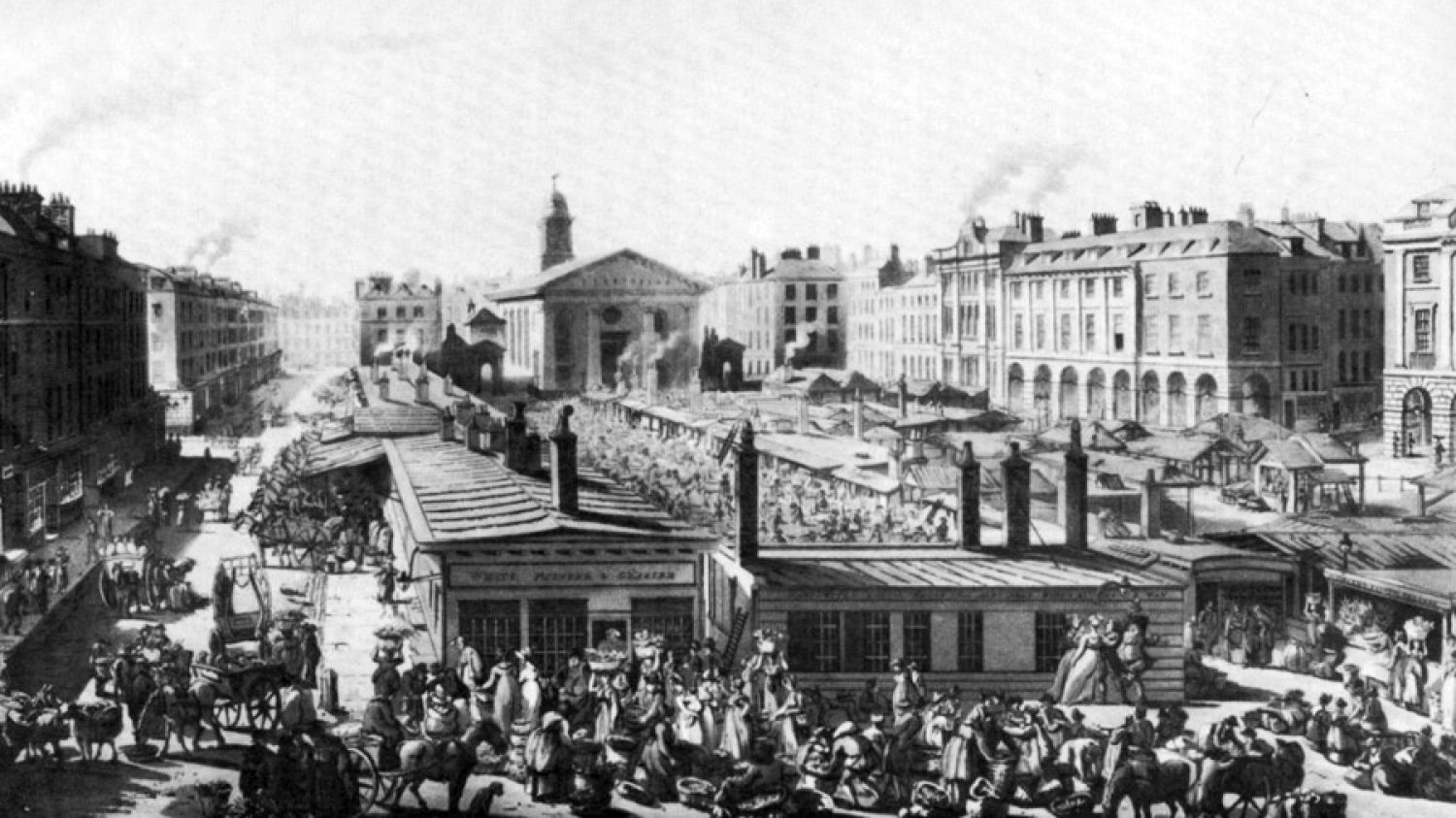London by William Blake

William Blake by Thomas Phillips, oil on canvas, 1807.
I wander thro’ each charter’d street,
Near where the charter’d Thames does flow.
And mark in every face I meet
Marks of weakness, marks of woe.
In every cry of every Man,
In every Infants cry of fear,
In every voice: in every ban,
The mind-forg’d manacles I hear
How the Chimney-sweepers cry
Every blackning Church appalls,
And the hapless Soldiers sigh
Runs in blood down Palace walls
But most thro’ midnight streets I hear
How the youthful Harlots curse
Blasts the new-born Infants tear
And blights with plagues the Marriage hearse
Published in 1794, this powerful poem by Blake reflects all that he disliked about his country’s capital city and what it represented. Blake detested the political and economic control exerted by London. In it he attacks the institutions of power – the church, army, government, and royalty. The first draft of the poem was written in 1792, at the height of the French Revolution. The established order was being overthrown just across the channel – Blake hoped the same might happen in England. It was published in his Songs of Experience and is one of the few poems in that volume not matched by a corresponding poem in Songs of Innocence – Blake could not see a lighter side to the problem that was London.

Illustrated text of ‘London’ by William Blake
The poem is in four quatrains, with alternate lines rhyming. A great use is made of repetition. For example, in the first verse, he stresses the word “charter’d”. Chartering was an 18thC process of corporate ownership which transferred public land to private ownership. The word gives a sense of everything being controlled, mapped, divided up for the rich to own. The word “mark” is also repeated – it is a short, sharp word, which can mean to take notice of, but can also indicate dirt or stains.
The subjects of the poem – the chimney sweep, the soldier, the harlot, the children – are there more by the traces they leave behind, rather than by actual physical presence. The poem is full of their noise – cries, sighs, curses – but we do not see their actual human forms. Instead we are given glimpses of their passing from the blood or soot left in their wake. The word “hear’ is used 3 times, and aural echoes are built up by the poet’s use of repetition.
The poem ends with a new born infant beginning life, something that should be joyful. Sex and marriage should involve love and pleasure, but in London they are blighted by VD, and the powerful image of the “marriage hearse” combines love and death very vividly. The infant’s “cry of fear” is another grim image in the poem.
In Blake’s view, a London child had a right to feel such fear. He attacks the institutions which should have done more to help, such as the church which stood by while young children were sent into horrific jobs like sweeping chimneys. But he also shows that society has helped to enslave itself – the “mind-forg’d manacles” indicate internally imposed restrictions on the mind (in the original draft of the poem he had “german forg’d links” instead, referring to German mercenaries brought in to help England in case of a French invasion, but he took this out as being too limited a reference, and changed it to something more universal). People, Blake argues, make their own chains when they refuse to open their minds to new and better experiences.
It is typical of Blake’s poems that this is illustrated and the picture adds commentary to the poem’s words. It shows a child leading an old man, who looks weak and vulnerable. Has his obsessive reasoning led to his crippled condition, the reader should ask? In contrast, the child knows the way forward and leads confidently, going towards the light, while the old man trustingly follows. The illustration gives more sense of hope than does the written text.
The poem has been set to music by Ralph Vaughan Williams and by Benjamin Britten.
Listen to this poem read by Tom O’Bedlam:
Share your thoughts on this poem by leaving a comment.
Susannah Fullerton: Happy Birthday – William Blake
Susannah Fullerton: 28 November 1757, William Blake is born
The Complete Poems by William Blake, Alicia Ostriker (Edited by)
I only recommend books I have read and know. Some of these links are my affiliate links. If you buy a book by clicking on one of these links I receive a small commission. It doesn’t cost you anything extra, but does help cover the cost of producing my free newsletter.
Comments are moderated, and will not appear until approved.
[DISPLAY_ULTIMATE_PLUS]

Maria Zannetides
Engaging with poetry can be a struggle for me but I loved this poem and your incisive comments greatly enhanced my appreciation and understanding. Tom O’Bedlam’s reading was just marvellous. Thank you.
Susannah Fullerton
It is a fabulous poem, isn’t it. I am so glad you found my comments helpful, Maria.